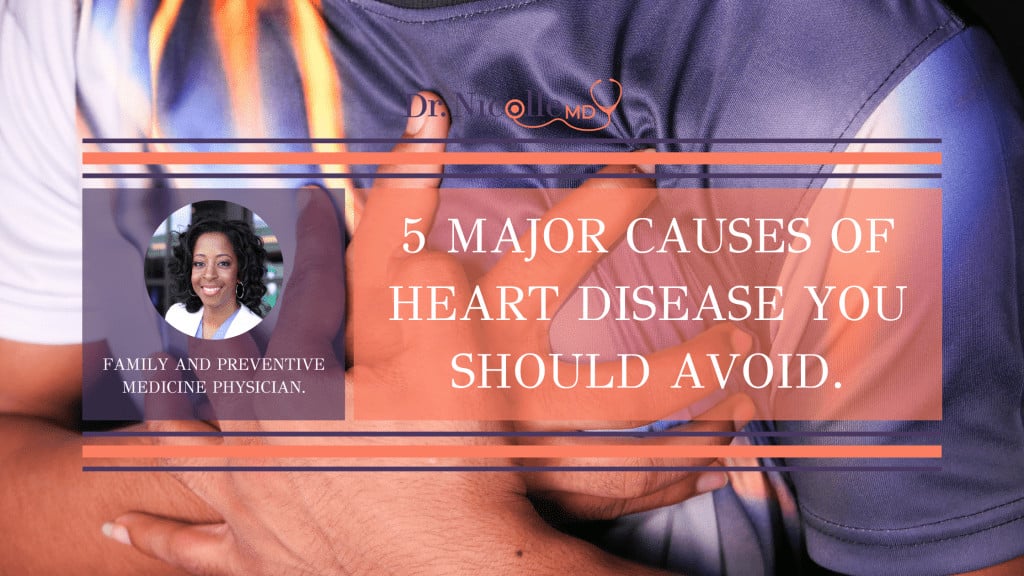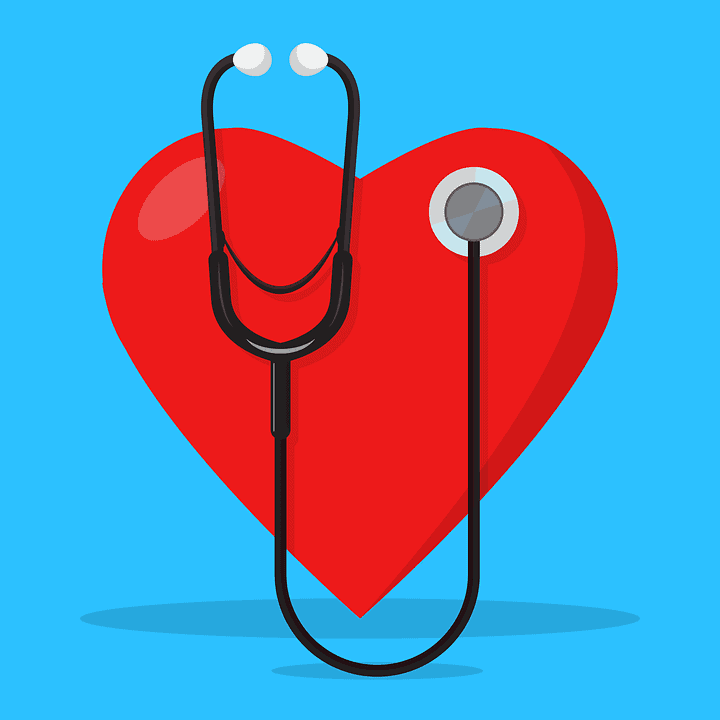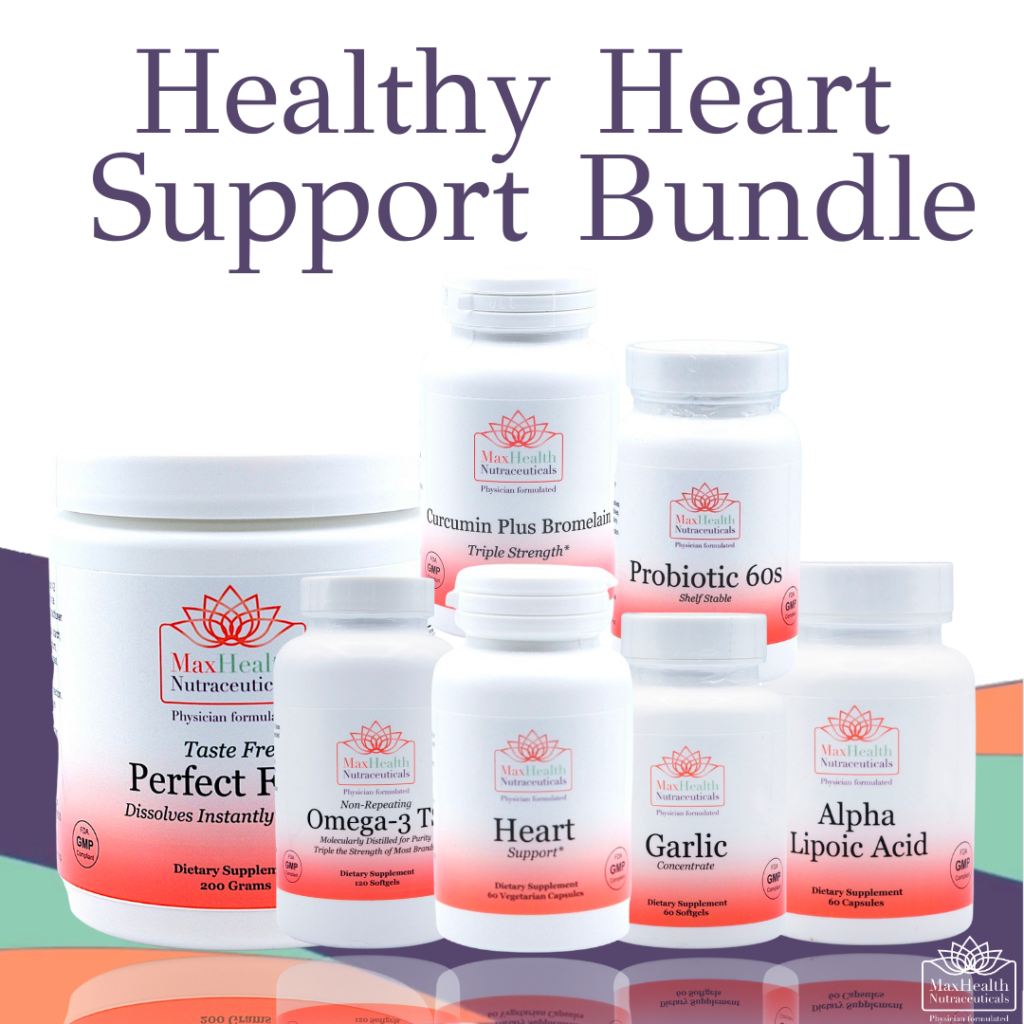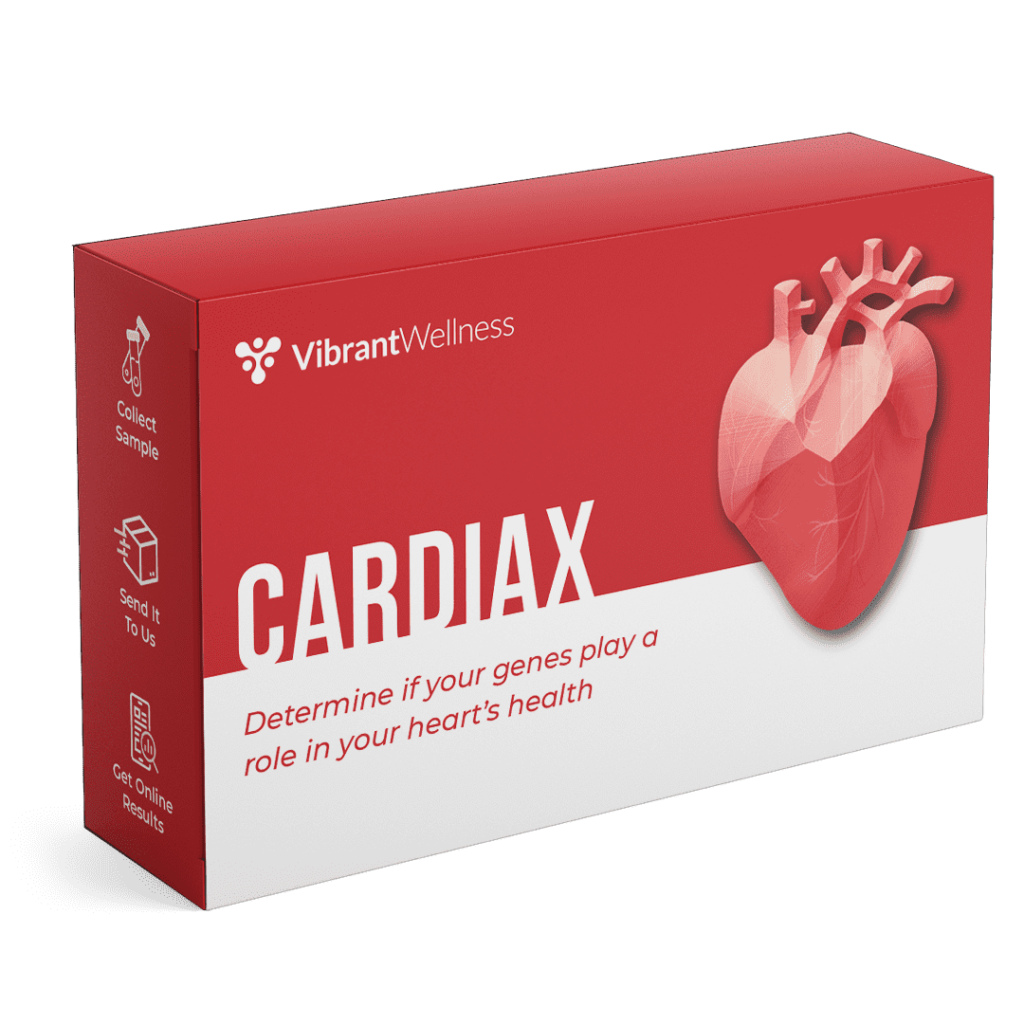

Hello. This is Heart Health Tuesdays! Today, we’ll talk about the 5 major causes of heart disease that you should avoid.
So many of the choices you make every day can impact your heart health.
Choosing to exercise and eat right every day is a decision that helps keep your heart in good working order, while opting to lay on the couch and eat junk food doesn’t do you any favors. Despite how straightforward this might sound, you might not realize just how much of an effect these decisions have on the health of your heart.
This is especially important for habits that negatively impact key risk areas like your cholesterol and blood pressure. These factors, among others, are some of the leading contributors to heart disease.
Keep a careful eye on the five major causes of heart disease so you can understand and reduce your risk of developing this condition and maintain your overall health.

Major Causes of Heart Disease
In most cases, heart disease is the result of genetics or poor health caused by smoking, high cholesterol, high blood pressure, and uncontrolled diabetes.
Smoking
The most common danger associated with smoking is lung disease, but it can affect other parts of your body too. Smoking can make you two to four times more likely to develop heart disease than a non-smoker, especially if you smoke a pack or more every day.
Smoking can damage your blood vessels, restricting blood flow. It also raises your blood pressure and heart rate, forcing the heart to work harder to supply your organs with oxygenated blood.
High Blood Pressure
High blood pressure has been connected to a number of different complications, but heart disease is among the most prevalent.
When your blood pressure is high, your arteries become damaged over time. Plaque builds up and narrows the arteries, and the heart pumps faster and harder to maintain blood flow. The extra effort enlarges the left ventricle, weakening your heart and often resulting in congestive heart failure.
Diabetes

Diabetes can significantly increase your risk of heart disease, as high blood sugar damages your blood vessels.
When you have diabetes, your body’s ability to produce nitric oxide is reduced. Nitric oxide functions as a vasodilator, which means it widens your blood vessels. Without it, your blood vessels narrow, restricting blood flow.
Additionally, high blood pressure frequently occurs alongside diabetes, which increases your risk even further. This can manifest in peripheral artery disease (PAD), which limits blood flow to the legs.
High Cholesterol
Some cholesterol is necessary for your body to function regularly, but too much can lead to heart disease. This is because high cholesterol increases the amount of plaque in your blood vessels. Too much plaque narrows the vessels and inhibits blood flow.
If too much plaque builds up, these deposits can form a blockage that causes a stroke or heart attack.
Family History
Genetics can play a role in determining your likelihood of developing heart disease too. You’re more likely to have issues with blood flow and heart disease if a family member has it, especially if one of your parents or siblings has a heart attack before they turn 50.
Of course, this doesn’t mean you are fated to develop heart disease no matter what. With careful management of your health, including regular checkups with your doctor and a commitment to making heart-healthy choices, you can reduce your risk.
Reducing Your Risk Level
In many cases, reducing your risk of developing heart disease means adjusting your behaviors and taking your overall wellness seriously. You can keep your blood vessels in good working condition by making small changes to your daily habits and speaking to a medical professional.
Avoiding Harmful Behaviors

For causes of heart disease like smoking, the best thing you can do for your body is quitting. Smoking can damage many different organs and tissues throughout your body, not just your heart, so you should strive to stop as soon as possible.
If you’re having trouble quitting, at least reduce the number of cigarettes you smoke in a day. Heavy smokers have a much higher risk of damaging their hearts, and becoming a light smoker can reduce your dependency and make quitting easier.
Treat the Root Causes
Many forms of heart disease treatment involve focusing on the root causes of damage to the heart and blood vessels. This means making healthier choices on a regular basis.
For example, you can lower your cholesterol and blood pressure by adjusting your diet. Cutting out saturated and trans fats, keeping your sugar consumption under control, and decreasing your salt content in your diet are all excellent healthy behaviors.
Getting just 30 minutes of exercise each day helps treat these conditions as well. Include some cardio to improve your heart health.
Speak With a Doctor About Heart Disease Treatment
If you have a family history of heart attacks and strokes, talk to your doctor about monitoring your risk levels at your yearly medical appointments. Keeping track of changes in your blood pressure and cholesterol can help you get on top of any issues through lifestyle changes or medication treatment.
Food For Thought
The causes of heart disease come in many different forms, and all of them are dangerous. If you are affected by any of these causes, you should be more vigilant about taking good care of your heart to keep yourself healthy and strong.
If you would like to receive a free resource sheet to support your quest for better heart health, click the button below to receive your gift.
I’m excited to talk about this topic today because not only do I truly believe that you have the power to reverse heart disease and lower high blood pressure to improve your health, but the science also agrees! You can adopt healthy lifestyle practices that improve your health and enrich your life, which can in turn improve the lives of those close to you. You have the power to break the cycle of these chronic diseases so that you can leave a legacy of health to your loved ones.
As you may already know, I use lifestyle medicine as the first line of treatment, before medications, to treat lifestyle-related chronic diseases. Lifestyle-related chronic diseases include diabetes, hypertension, obesity, and some cancers, just to name a few. Lifestyle practices, such as eating a whole-food plant-based diet and regular physical activity, can help you improve blood pressure and reverse heart disease. In certain cases, these approaches may even outperform pharmaceutical therapy. But I always tell my patients that conventional medications may be appropriate at this time to prevent catastrophic illness, but over time, you can work to make the necessary lifestyle changes to possibly reduce and/or eliminate medications. Please remember to always consult your physician for your particular needs and circumstances prior to making any decisions whatsoever.
Is Dietary Supplementation Right For You?
There is a common saying, “You can’t outrun a bad diet.” This is especially true when it comes to heart health. Diet is sooooo very important… Did you know that your diet could be the key to a healthy heart? It’s true – what you eat (and don’t eat) can have a big impact on your cardiovascular health. So, if you’re looking to keep your heart in tip-top shape, make sure you pay attention to what you put on your plate.
Unfortunately, it can be difficult to eat a healthy diet in this day and age. It is very important to note that we are not eating the same foods we ate years ago because the soils have been depleted of critical nutrients through current industrial farming practices. And because the soil is not as good as it used to be, the food supply (grown from the depleted soil) is not as good as it used to be. For example, you are not getting the same levels of magnesium as you would have gotten 30 or even 50 years ago.
Second, much of the food has been genetically altered, which can impact the inherent and unique nutritional composition that each food possess. For example, ancient einkorn wheat has less gluten, more protein, more Vitamin A, and more beta carotene, than modern genetically modified wheat.
Third, the toxic load in the environment today is much higher than 100 years ago. We can see this with global warming, toxic landfills, polluted oceans and waterways, etc. Toxicity levels interfere with nutrient assimilation and absorption not just into the foods, but into our bodies as well.
For some people, vitamin and mineral supplements offer important health benefits. Supplements are designed to fight deficiencies found in our diet and complement the food we eat regularly. Supplements are basically “helping hands” to our daily food.
If you need extra help in getting the nutrients you need, and/or are unable to eat better, the supplements in my Healthy Heart Bundle may provide the extra boost you need.
These are my favorite Heart Health Supplements to use! This Healthy Heart Bundle will ensure you have the intake of the important vitamins, minerals, and probiotics to decrease inflammation and boost your innate wellness day and night. Taken together, it’s a solid plan for increasing your body’s natural resiliency while you lose weight and improve your heart health, naturally.
For best results make sure you use my heart health supplements with dietary changes including a whole food plant-based diet, regular exercise (at least 2-3x per week), regular sleep (8 hours per night), and intermittent fasting (at least 1-3x per week).
Tools to Improve Heart Health
Blood Pressure Monitoring
It’s very important to monitor your blood pressure. I often recommend an automatic upper arm blood pressure cuff, but a wrist blood pressure monitor is also acceptable.
Weight Monitoring
Since weight management is very important in blood pressure control, I recommend that you be mindful of your weight and its fluctuations, and that you monitor your weight AT LEAST on a weekly basis. I recommend a scale that includes a body composition monitor.
Taking Charge Of Your Heart Health
Heart health is a big topic. It’s in the news, on our minds, and for good reason; heart disease remains the leading cause of death in the U.S. But what if there was something you could do proactively to help protect your heart from future problems? Enter the CardiaX test—a revolutionary new way to take charge of your heart health!
What is CardiaX?
CardiaX is a comprehensive genetic testing panel that looks at mutations associated with common cardiovascular risks. It can be used to determine if there are any genetic factors at play in your heart health, and it can also identify potential areas of risk that may require further action. With this knowledge, you can make informed choices about your health today with the aim of improving long-term heart health outcomes.
Who Might Benefit from CardiaX?
If you have been diagnosed with or are at risk for atherosclerosis, abnormal cholesterol production, hypertension, stroke risk, and risk for heart attack then you may benefit from this test. Additionally, anyone who wants to know more about their genetic predispositions for common cardiovascular risks may also want to consider taking this test as well.
What Can I Do With My Results?
Your results will give you an indication of whether or not there are any potential genetic markers playing a role in your risk for developing certain conditions related to heart health. From there, you can work with your healthcare provider to develop a plan that takes into account these findings and helps you develop strategies for managing them going forward. In addition to lifestyle changes such as diet and exercise modification, selecting medications that are tailored specifically to your genetics could be beneficial as well.
In A Nutshell…
The CardiaX test is an exciting new way to take charge of your heart health by learning more about how genetics might be playing a role in certain cardiovascular risks. With this knowledge in hand, patients can make decisions informed by their own unique genetic profile that will help reduce their overall risk for developing certain conditions associated with heart disease. This type of proactive approach is key when it comes to protecting ourselves against this all-too-common affliction—so don’t wait another minute! Take control of your future and get started with the CardiaX test today!
Remember, healthy lifestyle behaviors–like eating a whole-foods plant-based diet that is low in sodium, being physically active, and stress management are the best ways to prevent and control high blood pressure. Please talk with your doctor about any complementary health approaches, including supplements, you use.
Dr. Nicolle Martin
Some of the links in this article are "affiliate links", a link with a special tracking code. This means if you click on an affiliate link and purchase the item, we will receive an affiliate commission.
The price of the item is the same whether it is an affiliate link or not. Regardless, we only recommend products or services we believe will add value to our readers.
By using the affiliate links, you are helping support our Website, and we genuinely appreciate your support.
Last updated on January 28th, 2022 at 03:21 am

Minimize Medications. Maximize Health.
Are you super busy but need to take control of your health? Are you tired of being tired? Subscribe to my “Minimize Medications, Maximize Health Blog” and I’ll give you 7 Tips to Get Healthy in No Time absolutely FREE.







